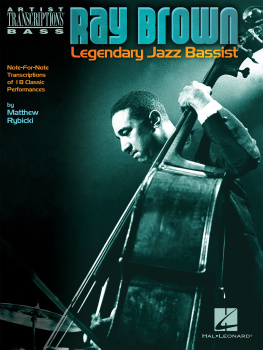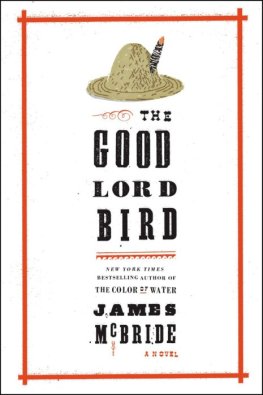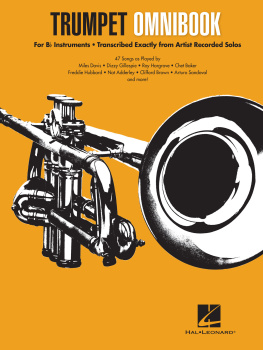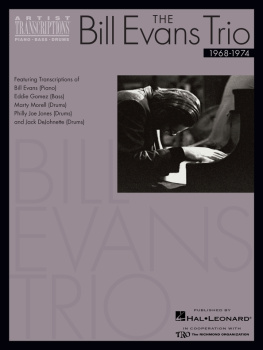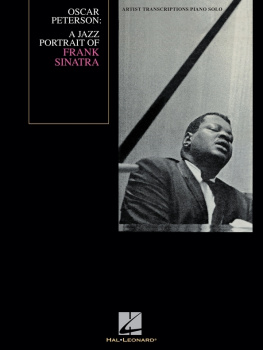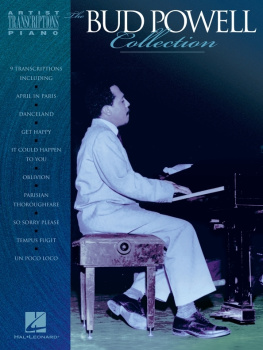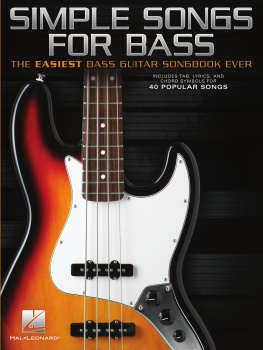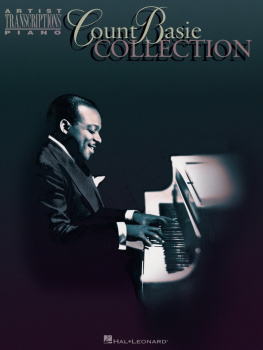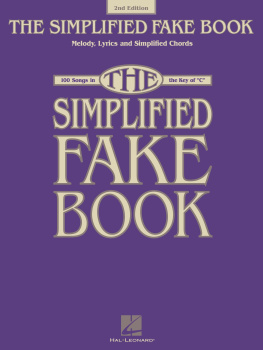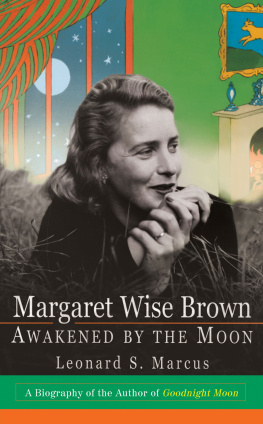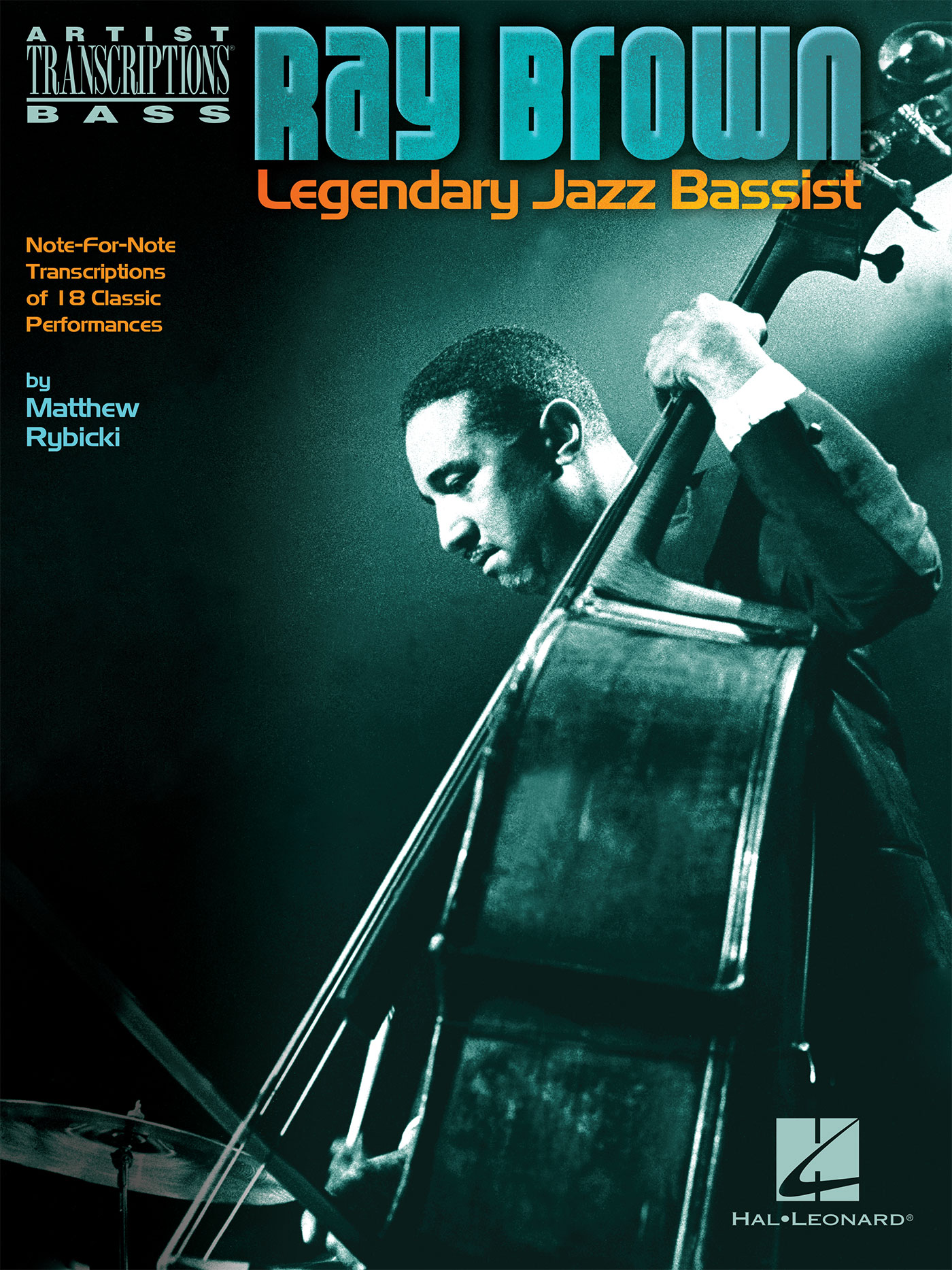7777 W. Bluemound Rd. P.O. Box 13819 Milwaukee, WI 53213
Infringers are liable under the law.
FOREWORD
"Of ability, quality or eminence considerably above the normal or average." That's the definition of "great," according to the Oxford English Dictionary . It's also a perfect description of the playing of Raymond Matthews Brown.
From the mid-1950s until his untimely death in 2002, every major, celebrated bassist from Sam Jones to Ron Carter to Buster Williams to John Clayton to John Patitucci and everyone in between has listed Ray Brown as a primary influence. Browns playing exemplified the very best of all aspects of bass playingsound, time, technical fluidity, intonation, harmonic intelligence, and most of all, groove ! I once heard a highly respected drummer say, It was hard to play with Ray Brown, because he grooved and swung so forcefully, drums were somewhat superfluous. He was a one-man band.
Kudos to the wonderful bassist, Matthew Rybicki, for his thorough research and giving us these figurative maps of harmonic greatness from Ray Brown. I urge you to purchase the recordings from which these transcriptions are derived, so you can not only read the notes, but most importantly, feel the groove of Mr. Raymond Matthews Brown.
Enjoy,
Christian McBride
Contents
Ray Brown is probably one of the greatest talents ever on his particular instrument. He has a natural, intuitive feel for anything he approaches musically, and his sound is so huge and personal that listeners recognize it almost automatically.
- Oscar Peterson
Hes the greatest working bass player I know. Hes done more of it and hes done it well. Hes a complete bass player and soloist.
- Milt Hinton
Ray Brown is the reason I play bass. The instrument chose me and I chose Ray Brown. At age sixteen, I didnt know much about how awesome he was, but the more I studied him and studied with him, the more I learned what the jazz world already knew: he was a pivotal force in jazz from his bebop days until his death.
- John Clayton
I have a special place for Ray Brown's playing because his approach to the instrument was the thing that inspired me initially ... [he] is the fundamental influence that I have on my playing. He kind of holds a special place for me.
- Dave Holland
He developed a lot of the skills that became the standards of the next generation of virtuoso bassists. Like Blanton, Mingus, and Pettiford, Ray developed his technique before the invention of amplifiers and metal strings ... He knew how to project his tone ... making the bass line powerfully propel the rhythm section and the band.
- Bill Crow
Ray has an insatiable desireinsatiable, absolutely insatiableto find the right note at the right time [He is] the epitome of forethought; sympathetic forethought.
- Oscar Peterson
Ray had so much love of life and the music. He had so much integrity. He treated the music with so much dignity and respect. I spent four and a half years as a sideman with Ray Brown's trio. Music was his life, more so than anyone I could mention.
- Benny Green
Mr. Brown was Mr. Bass, thats it! When I first heard him play in 1943 I said to myself, Good God! This man comes from another planet! I had never heard a bass played like that. And he swung so hard.
- Hank Jones
Ray was the man! He got the biggest and strongest sound ever on the bass. His sound came directly from the center of the earth. Like an earthquake.
- Lionel Hampton
Ray Brown is on every recording date I ever doif I can get him. Hes simply the best theres ever been.
- Quincy Jones
INTRODUCTION
Ray Brown is a legend of jazz bass, and his playing is considered by many to be the standard by which all other bassists are judged. It is with the same respect and admiration that I present this book.
During the course of this work, I realized that no one had written anything specifically focused on Ray Brown. This seemed odd given the fact that he was one of the most prolific jazz bassists ever, and was an undisputed master of the instrument. Perhaps it is that he had been too prolificwhere does one start in trying to quantify or qualify such a master? For that matter, why would anyone want to? Why not just enjoy?
While I agree that we should enjoy his work, we can learn just as much from it. Not only can we learn technical specifics, but we can also learn from his incomparable musicianship. Such an undeniably great artist, whose career spanned the greater part of jazz history, is unquestionably deserving of our attention. In that spirit, I assembled this book for all musicians so that we may appreciate, understand, and get closer to some of Rays significant works.
There are so many recordings to draw from that one could conceivably transcribe for years and not finish his entire discography. My intent with this book is to give the reader a general feel for the different phases of Ray's career, focusing on significant recordings and artists he played with, as well as many of the Ray-isms that helped make him so unique.
This book is geared primarily toward bassists, though any performer is sure to gain much from studying these recordings. There is no substitute for personally listening, studying, and playing through the bass lines and solos of the masters.
In general, I have omitted articulations, as listening is the key to learning the nuances of this beautiful music. Jazz is an aural art form and so must be learned in large part by ear. To that end, the compact disc titles and catalog numbers are listed on the first page of each transcription.
I strongly encourage you to purchase the recordings and listen intently before, during, and after your study. It is extraordinarily important to note that in order to be able to understand, assimilate, and perform this music we must go to the masters first. Any time that you can use your eyes and your ears to learn, you will benefit much more than reading printed music alone.
Finally, I cannot say enough how helpful it is to memorize these bass lines and soloseven the long pieces. You will benefit greatly from your own hard-won successes in learning how Ray did what he did.
Of course, enjoy, and as the jazz masters say: Straight ahead and strive for tone.
Matthew Rybicki
biography
Raymond Matthews Brown was born in Pittsburgh, Pennsylvania, on October 13, 1926. His father, a chef, filled the house with the music of Fats Waller, Duke Ellington, Art Tatum, and Count Basie. Ray received his first formal musical training on the piano when he was eight years oldabout the time he started attending Duke Ellington and Count Basie concertsand later learned to play the bass by ear.
Shortly after his high school graduation, Brown went on the road with the Jimmy Hinsley Sextet and traveled with the group for six months. The following year he joined the Snookum Russell band, playing larger clubs throughout the United States. In 1945, Ray moved to New York City where he heard the greatest talents in the jazz world play, and quickly took his place alongside them.

